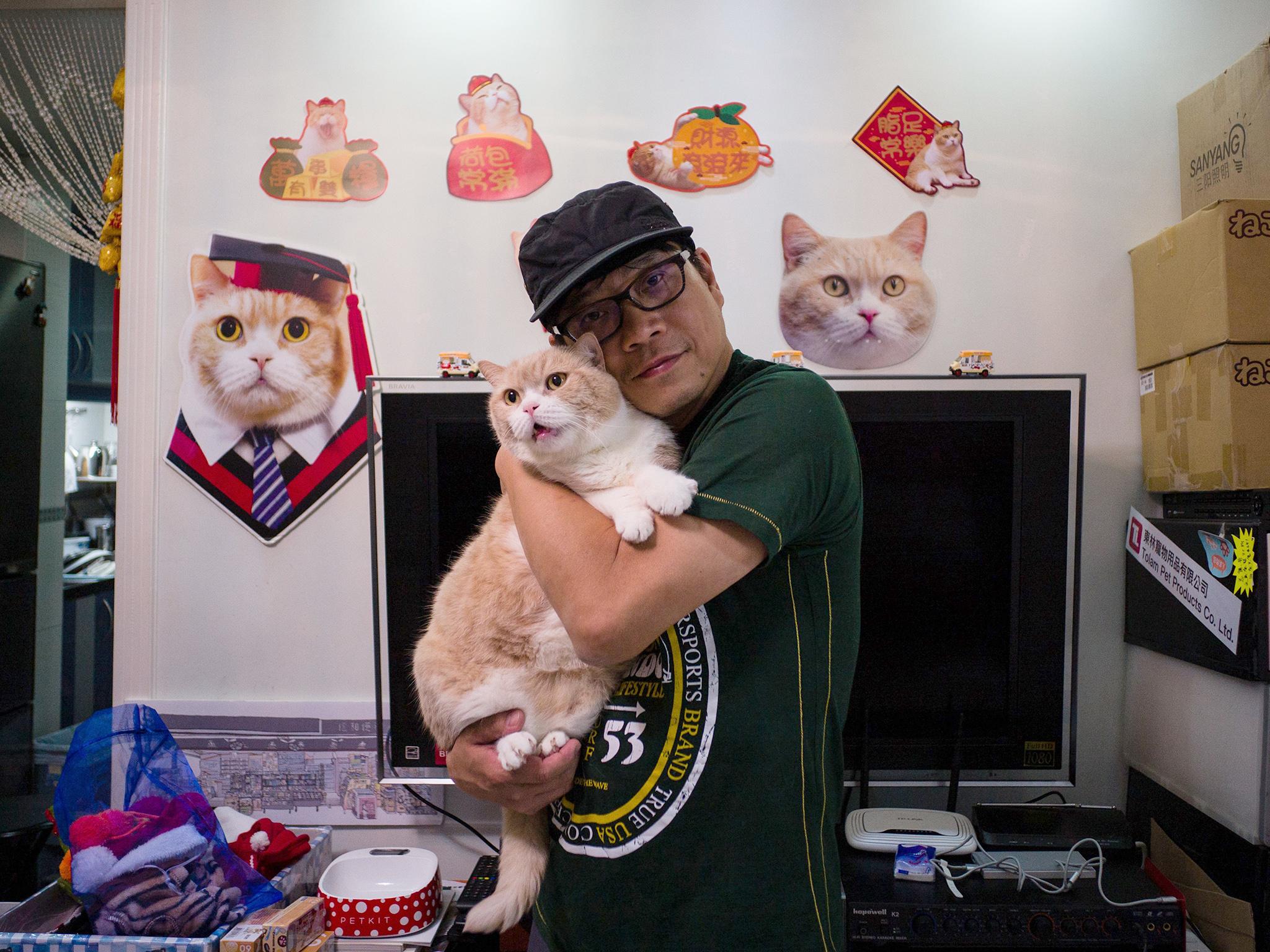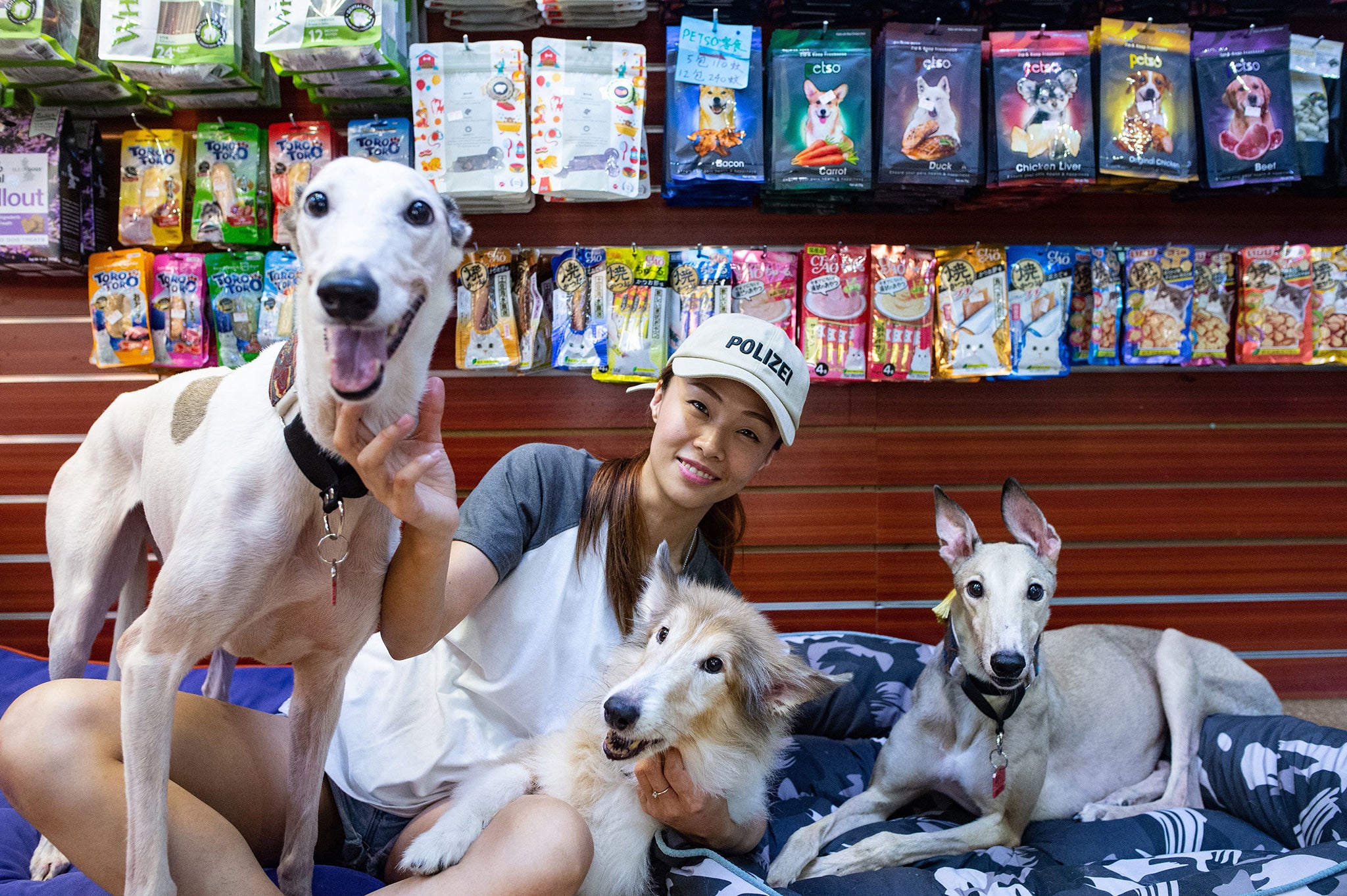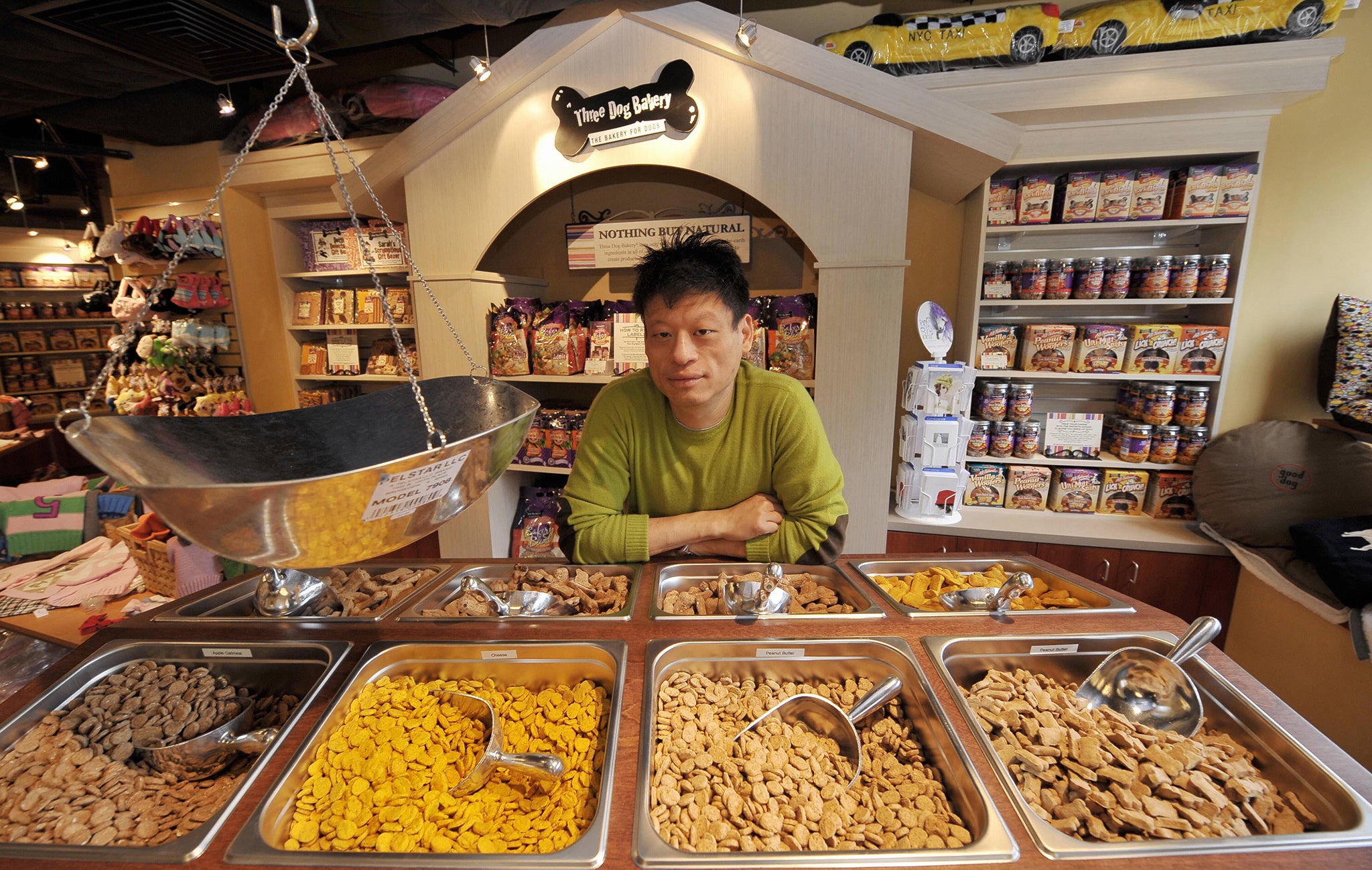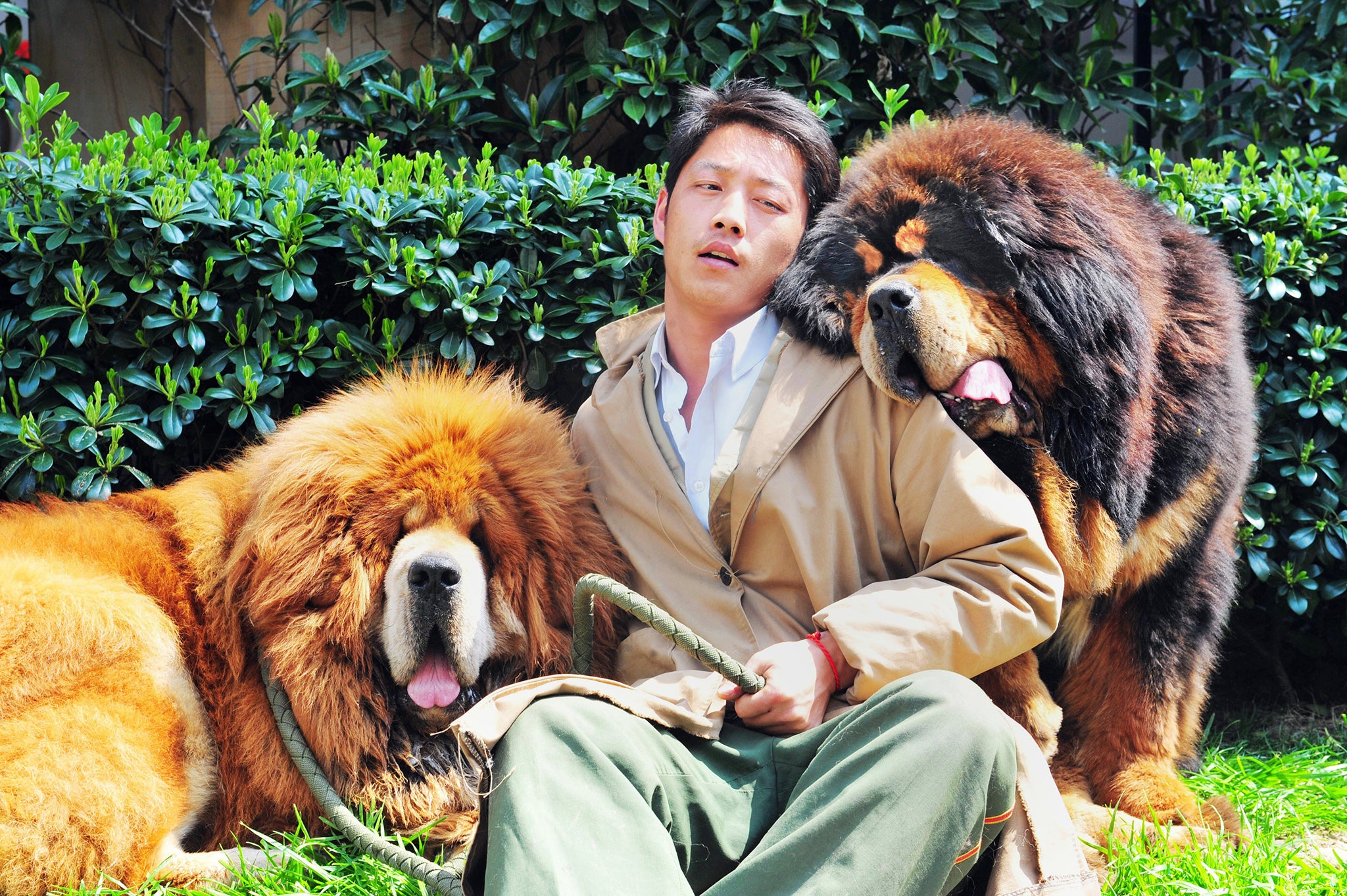How China's cats and dogs became embroiled in the trade war with the US
American pet food brands have become collateral damage in a feud that encompasses hundreds of billions of dollars in goods that flow between the two countries

Olivia Ren never expected a trade war between the United States and China to affect Dada.
Dada is Ren’s beloved golden retriever, and she pays heavily in Shanghai for an imported US brand of pet food called Canidae so that he can eat the best. Ren often tastes his food herself to make sure it isn’t rancid or poisonous, as she believes Chinese pet food can sometimes be.
Now Canidae and other US brands have become collateral damage in a trade war that encompasses hundreds of billions of dollars in goods that flow between the two countries. Pet-food industry experts say revenge-minded Chinese officials have been delaying shipments at customs since May to get back at the United States. New tariffs in July have also made imported pet food more expensive.
In June, desperate for supplies, Ren bought 200 pounds of Canidae for Dada and for her boyfriend’s dog, a French bulldog named Houhou.
“I have nightmares that wake me up with anxiety about not being able to buy Canidae anymore,” she says.
Ren is not the only Chinese pet owner taking action. Austin Chen, a Guangzhou resident, has been stocking up for his orange tabby, Fera, in case his US brand of cat food is next.
“It is the first time,” he says, “that I realised the trade war deeply influenced my life and my cat.”

Choosy pet owners like Chen are a small minority in China, but their pain could presage broader tensions as the trade war deepens. China’s retaliatory tariffs have made imported soybeans and meat more expensive in a country that depends on imports for many of its food needs. Attitudes in China could harden if a lengthy trade war leads to higher prices, but it could also put pressure on Beijing to win concessions or cave — and both options carry big risks for China’s leaders.
Pet food may seem an unlikely target in a trade war, but it shows how creative Chinese officials must become if they want to hit back at President Donald Trump. China doesn’t import enough to match dollar-for-dollar Washington’s tariffs on more than $250bn (£190bn) in Chinese goods. Instead, Beijing has taken a series of unorthodox moves, such as blocking a huge corporate takeover and tying up imported cars in administrative knots at China’s docks.
Pets in China have become big business. Soaring real estate prices and other costs have made it prohibitively expensive for many city dwellers to start families. Many have chosen to buy animals instead.
According to China Securities, a Beijing brokerage, pet spending in China has surged more than eightfold since 2010, to about $25bn a year, mostly on cats and dogs. The market is still growing. China has four times as many people as the United States but roughly half the number of household pets, with 51 million dogs and 41 million cats.
And many people simply don’t trust Chinese pet food. In a country where even infant formula and childhood vaccines have had quality problems, pet owners often view imported products as safer.
Regardless of where it comes from, some owners like Ren try the pet food themselves. If it smells or tastes like rotting fish, decomposing chicken or other unpleasantries, they won’t let their pets take a bite.
“If dog food is not fresh, it tastes very much like stale cooking oil with fat,” says Ruan Qionghao, another Shanghai owner of a golden retriever, named Mixiu.

There are no publicly available, peer-reviewed studies of problematic pet food in China. But Chinese consumers are wary of a wide range of domestic products, particularly after six children were killed and nearly 300,000 sickened by contaminated infant formula a decade ago, and nearly a million childhood vaccines were exposed this summer as defective.
In the United States, the Food and Drug Administration has been issuing warnings since 2014 about pet food jerky from six Chinese companies. That same year, the American retail chain Petco said it would halt sales of pet food from China. PetSmart, another big American retailer, quickly followed, though Chinese products continue to be sold at many US stores.
In a separate scandal, waste chemicals from plastics manufacturing were found in 2007 to have been used as a low-cost filler in Chinese pet food exported to the United States.
“Domestic pet food is poisonous,” says Elaine Sun, a poodle owner in Wuxi, a city near Shanghai. “No matter how good they say it is, I will never trust it.”
Ding Limin, a pet nutrition expert at China Agricultural University and member of a government-affiliated commission on animal feed standards, says that it’s little different in nutrition and quality from imported pet food.
Trade policies have long affected China’s pet food scene. Beijing bans wholesale imports of pet food with beef or chicken, citing fears of mad cow disease or bird flu, though it loosened rules two years ago to allow imports to be sold online. Partly as a result of the restrictions, last year China exported $148m worth of pet food to the United States but imported only $6.5m worth.
China also began allowing some wholesale imports of US beef for people last year.

Industry officials in China say importing pet food from the United States has become tougher since May, and that the trade war is to blame. EPet, a Chinese online marketplace, said in mid-September that import controls were tightening and officials were carrying out more inspections.
“Sadly, our pet food industry has been influenced by the trade storm,” the company said.
Roy Cheng, an import agent in Shanghai for American pet food, says his products were inspected at least six times in the past two months. Before the trade war, inspections took place less than once a month.
“I am turning myself into a politician, watching trade war news every day, even though I only sell pet food,” he says.
Vivian Li, the China representative for Halo, a pet food producer in Tampa, Florida, says the company was set to enter the Chinese market this year but had been dismayed to see ever-tighter customs inspections and the 25 percent tariffs.
“It is a very tough time for us,” Li says.
Wang Jinquan, director of the pet nutrition and food processing research office at the government-affiliated Chinese Academy of Agricultural Sciences, said in August that the timing of the disappearance of American-made pet food from online marketplaces was coincidental. He said that China had recently aimed its enforcement efforts only at “those brands that failed to meet laws and regulations”.
China’s General Administration of Customs did not respond to requests for comment.

Robert B Zoellick, a former United States trade representative, said in Beijing last month that pet food could be an area for compromise between the two countries.
“There’s an expansion of the pet culture here, so don’t we want to keep them healthy?” he said. “In this case, you’ve got very lovable, cuddly consumers.”
But for now, pet food may remain a hostage of the trade war. Ren, Dada’s owner, recently found online and bought a scarce bag of Canidae, but she was told it was stuck in customs. She cancelled instead.
“I would rather cook it myself,” she says. “Dogs are like humans: If you have good food, you won’t go to the hospital as often.”
© New York Times
Join our commenting forum
Join thought-provoking conversations, follow other Independent readers and see their replies
Comments
Bookmark popover
Removed from bookmarks